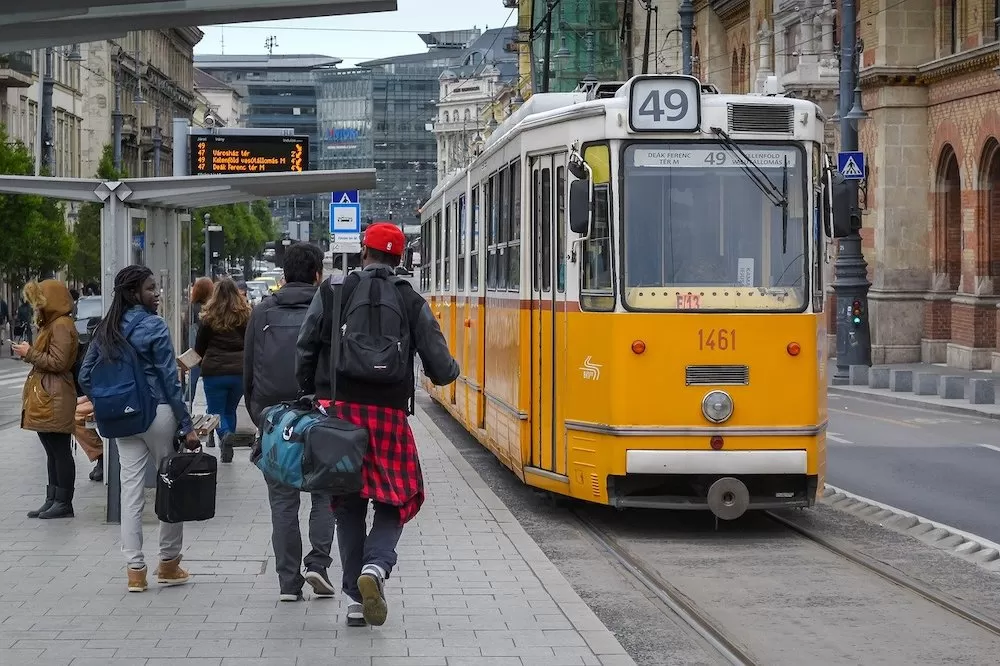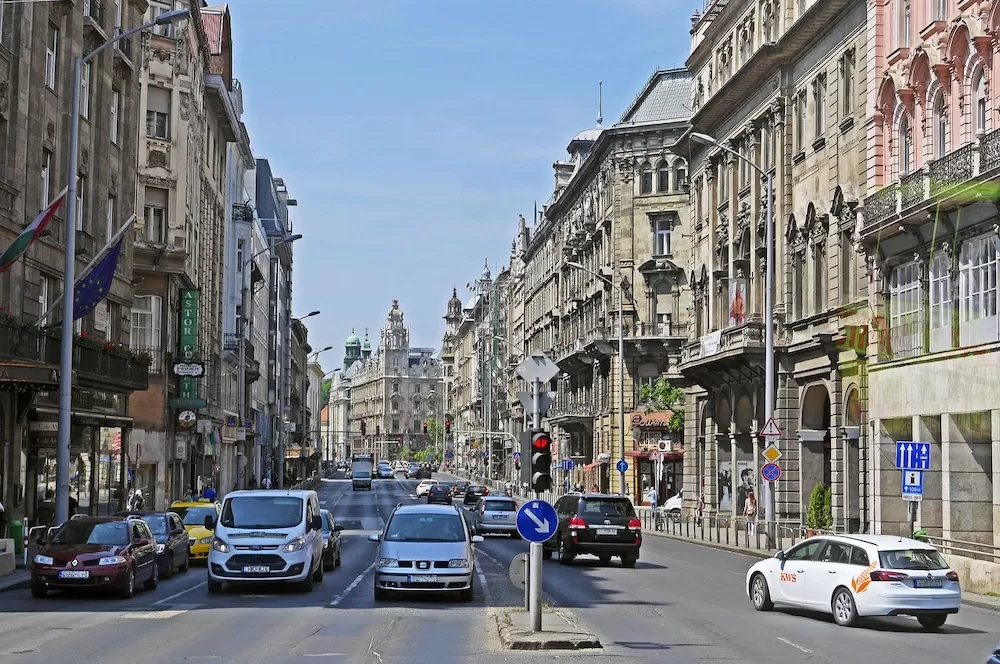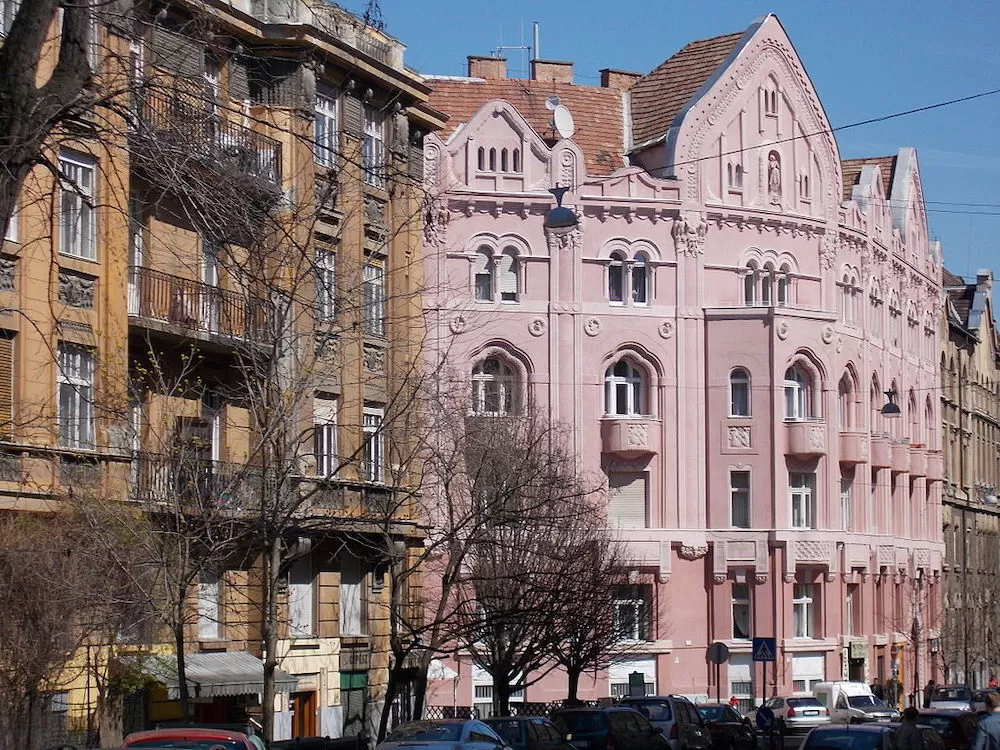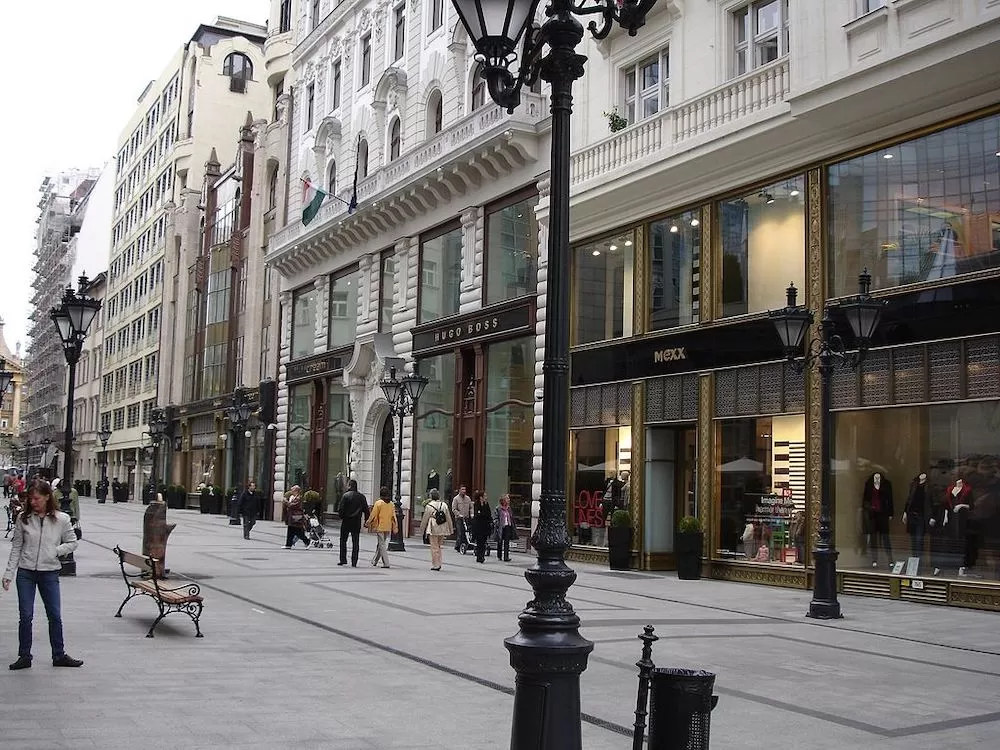
Though there are many reasons to travel to Budapest, perhaps the main one is the city's utter beauty. If you thought Paris and Rome were knock-outs, wait until you get to the Hungarian capital! Grand palaces, stunning architecture, and old-world charms reign supreme in Budapest. Various places feel like you've traveled back in time, while others look like they came straight out of your favorite Disney films. With so much beauty on offer, it's no surprise that Budapest's tourism remains as strong and stable as ever!
Yes, it most certainly is. Not only is Budapest a beautiful city, but it's also a safe metropolis and the living costs aren't all that high. On top of that, the Hungarian capital also serves as a major business hub, allowing for several opportunities for locals and foreigners alike. In a nutshell, it's fairly easy to live a safe and comfortable life in Budapest.
Though this guide will show you the basics of everything you need to know about moving to Budapest and starting a new life here, the process of relocation is a lot simpler than most realize. Some of the vital steps include:
Applying for a visa to enter Hungary.
Getting a residence permit.
Finding proper accommodations.
Once you've done all of these, you can finally settle down in Budapest!
As expected Budapest is the largest and most populated city in Hungary. The Hungarian capital currently has a population of around 1.780 million residents and a land area of around 525 km2 (203 mi2). All of these residents have to contend with all four seasons as Hungary is a landlocked country in Central Europe. The city's hottest month is July, which has an average temperature of 21°C (70°F). Its coldest city, on the other hand, is January, which has an average temperature of -1°C (30°F).
Budapest might not be the most famous European capital city but it's well-known for a lot of things. They include
Architectural marvels
Thermal baths
Hungarian cuisine
Hungarian culture
The Danube River
The Sziget Festival
There's a lot you can do in Budapest for a day. You can see its famous architectural marvels, for example, which include the stunning Hungarian Parliament Building, St. Stephen's Basilica, the Fisherman's Bastion, Buda Castle, and more. You can also go shopping along Váci Utca, the city's main retail district. This popular fashion hub houses all the famous brands, local designers, and more. And when you get too cold, head on over to the world-famous Szechenyi Thermal Baths for a warm dip. In winter, these thermal baths will thaw you out in no time!

Source: Wikimedia Commons
You probably already know that you need a Schengen Visa to gain entry to Hungary. Especially if you're a non-EU and EEA citizen. Those coming from fellow EU and Schengen area countries don't have to get a visa. They can go to Hungary and stay there for about 90 days (approximately 3 months). After the initial 90 days, anyone who intends to stay in Hungary for a longer period will then have to apply for a residence permit.
The process of applying for a Schengen Visa differs from country to country, particularly when it comes to long-term visas that apply to moving to Budapest. In any case, it's mostly about completing a list of requirements, sending it to your country's Hungarian embassy, and waiting for their approval. The list of requirements also differs from country to country, but they usually include:
A valid passport
A flight itinerary
Proof of reason for going to Hungary (i.e. job relocation letter, enrollment letter for students, etc.).
Proof of accommodations
Proof of sufficient funds
Travel medical insurance
It's also worth noting that apart from getting a Schengen Visa, non-EU and EEA citizens also have the ETIAS Visa Waiver Program option. As its name says, the program allows citizens of selected countries to get to Hungary (or any other EU member-state) without a visa. These selected countries include the US, the UK, the UAE, Australia, Canada, Japan, Singapore, Chile, and more.

Source: Wikimedia Commons
Budapest's public transport is efficient and easy. Whichever system you board, rest assured that you will get to your destination on time. It helps that it's quite diverse as well. There's the Budapest underground metro, which travels throughout the city. The more famous yellow trams where you could still see most of the city while you're riding them. The novelty trolleybuses are packed with as much nostalgia as the city's most historic structures. And the ferries on the Danube River are a mode of public transportation that you won't see in any other city in the country.
As already mentioned, you can take the underground metro, yellow trams, trolleybuses, ferries, taxis, or buses to get around Budapest. There's also the option of using a transportation app. Ride-hailing apps like Bolt, BKK Futár, and more operate in the Hungarian capital. Famously, however, Uber does not operate in this city.
Yes, it is! Budapest has various sidewalks, lanes, pathways, and more that are perfect for a stroll. Just like any other European city, you can also ride your bike to get to where you need to be.

Source: Wikimedia Commons
If you think the Hungarian capital is all grand castles and baroque churches, think again! Budapest's neighborhoods are a lot more diverse than that! And this means you have a load of options to choose from when deciding where to stay, though you really ought to consider your own lifestyle when making that decision. For instance, District XIII is more your type of area if you're a hipster at heart. Ferencváros would suit you more if you really want to get into the local vibe of the city. Or you should live in Belváros if you prefer the glamorous upscale city lifestyle.
Moving to Budapest means having to choose a new neighborhood to call home. As mentioned previously, the city's districts are quite different from each other. The right one for you depends on your lifestyle, current situation, vibes, and more. With that said, there is a general consensus that Belváros – Lipótváros, Terézváros, Erzsébetváros, and Ujlipotváros are the finest areas in Budapest. They're all safe, relatively peaceful, and exciting.
Many of the neighborhoods mentioned so far are also where the expats in Budapest live. You can also add Újbuda (District XI), Rózsadomb (District II), Ferencváros (District IX) and Óbuda (District III) to that list. You'll find many foreign locals in these parts of the city too!

One of the best parts about moving to Budapest is knowing that the city isn't all that expensive. It's not accurate to say that it's cheap, but Budapest's living costs aren't all that high either. A single adult typically spends about 265,297.50 Ft (€700.8) per month without rent. A family of four, on the other hand, spends around 932,562.30 Ft (€2,463.30) every month. Compared to other European capitals, these figures aren't bad!
Generally speaking, no, it's not! Some expenses can get high at times, but in the grand scheme of things, Budapest isn't a pricey city. Just look at the common rental fees, for example. You can rent a luxury apartment in Budapest for a minimum of 150,000.00 Ft ( €396.21) to a maximum of 550,000.00 Ft(€1,452.77) per month. Such figures are practically unheard of in other major cities!

Source: Wikimedia Commons
More often than not, you move to Budapest—or anywhere else, for that matter—because of work. On the off chance you got to relocate without a job or you got to let go when you've finally settled down in the city, know that all is not lost. For one thing, Hungary's job market is fairly stable. It currently enjoys a low 3.84% unemployment rate and a pretty commendable 60.47% employment rate. Add to that the fact that Budapest is a business hub, which means there are more opportunities here than there are in other parts of the country.
Yes, to a certain extent, it is. In Budapest alone, it's not that difficult to land employment. Even though it's a well-populated business and finance hub, the Hungarian capital isn't so crowded that job opportunities are scarce. As long as you have the right qualifications and can speak Hungarian, you can get any job you want. But even with limited resources and skills, there are still many blue-collar jobs to take on too!
Finding a job in Hungary (or anywhere else) is easier than it's ever been. Thanks to the internet, you can go on job-seeking websites and apply directly to companies, recruiters, and more. At the same time, you can seek the help of a recruitment agency too. They will pair you up with the right company and position. And when all else fails, there's still the classified ads section in the newspaper.

Source: Wikimedia Commons
If you're moving to Budapest with your entire family, you'll also have to consider your kids' schooling. Here in Hungary, preschool education is compulsory and free (in public schools) for kids aged three to six years old. Secondary school then follows, which is also compulsory and goes until the age of 16. The only hook here is that your little ones might not be suited for Budapest's public schools since they mostly teach in Hungarian. In that case, you're better off going to any of the international schools in the city.
There are several international schools in Budapest, each more prestigious than the next. These are acclaimed educational institutions that were established specifically to elevate education in Hungary and to teach international students from around the world. The American International School of Budapest, the Britannica International School, International School Budapest, and REAL School Budapest are just some of these well-respected schools where your kids can get a high-quality education. Some might even catapult your children to getting into Ivy League colleges in the US or the top universities in England!

Source: Wikimedia Commons
Since Hungary's healthcare operates on a universal system, the moment you become a legal resident here, you'll automatically gain access to it. This is part of the reason why their system is often lauded as one of the best. Currently, the World Health Organization ranks it as the 66th best in the whole world. That alone is enough to let you know that healthcare is the least of your worries when you relocate to Budapest. As long as you're covered, you can get treated at public hospitals in the city. But if you prefer private institutions, you're better off getting a private medical plan, preferably on top of your public health coverage.
What's another reason why healthcare is the no cause for concern when you move to Budapest? The hospitals! There are many great hospitals in Budapest and they specialize in various aspects. The Szent Margit Hospital, for instance, is one of the most well-respected children's hospitals in Europe. The National Institute for Accident and Emergency is the go-to hospital for, as its name suggests, any accidental injuries.

Source: Wikimedia Commons
The harsh reality about capital cities is that they tend to have mid-to-high crime rates. It's the same with Paris, Rome, and more. Budapest, on the other hand, is an entirely different story. The crime rates in Budapest are low, so much so that you'd almost think that it's not Hungary's capital city. Currently, the city boasts a low 30.85% general crime rate with a moderate 46.58% rate of increasing crimes. These figures are totally not bad!
It's safe to say that yes, Budapest is a safe city. As already mentioned, the city's crime rates are low. You almost couldn't compare them with the crime rates in more well-known cities like Paris, Rome, Barcelona, and more. At the same time, Budapest's safety rates are high too!
The Hungarian capital currently enjoys a very high 84.58% safety rate during the day. At night, the rate drops to just 61.87%, which is still considered high.

Source: Wikimedia Commons
Don't make the mistake of thinking that most European countries run their tax systems similarly. Hungary's tax system is fairly different from its neighbors, no matter how many similar elements there are with each other. The best example is the income tax here. While in other countries, the rate of your income tax depends on how much you earn, here in Hungary, it's a standard 15%. It's these sorts of differences that make it vital that you understand how a country's tax system works before you move and settle down there.

Source: Wikimedia Commons
Before ending this relocation guide, here are a few tips worth remembering.
Learn Hungarian before getting to Budapest.
Enroll in a language school in Budapest to improve your Hungarian.
Learn Hungarian social customs to avoid offending the locals.
Set up a local Hungarian bank account.
Get a SIM card for your phone by joining a local Hungarian mobile network.
Learn the route you'll take every day.
Make friends and build a strong local network.

Source: Wikimedia Commons
If you're ever planning on moving to Budapest, let this relocation guide help you out. It lays out all the basics you need to know for a seamless and hassle-free transition to a new and exciting life ahead!